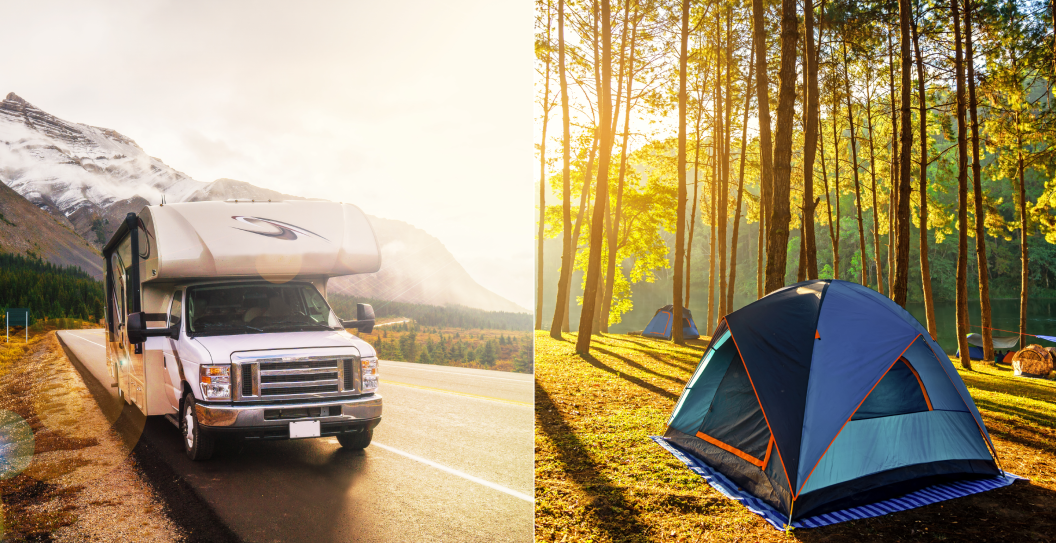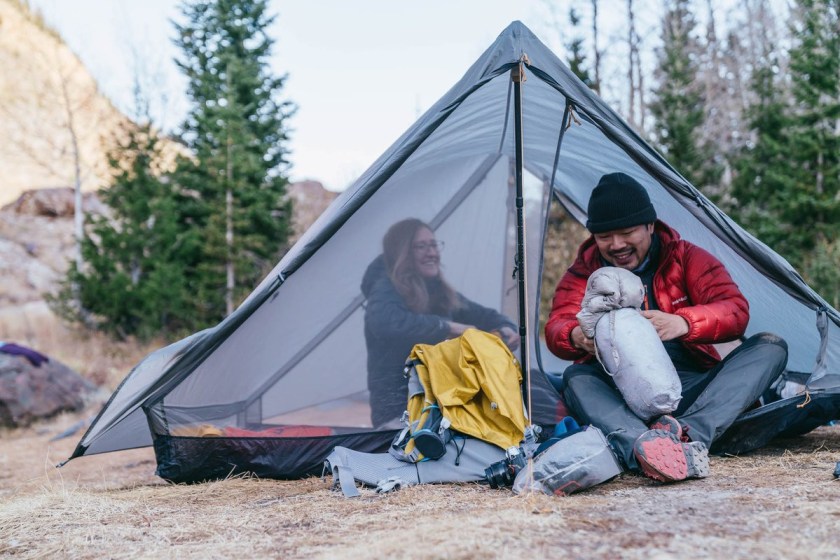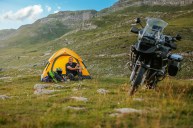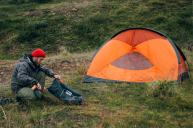We all want to get outside and while how we do it doesn't have to be a competition, folks who car camp have very strong opinions about the best way to go about it: Some folks are die-hard RV campers, swearing by the luxuries of having a home on wheels, while others feel keeping it simple with good ole' tent camping is far superior and pure.
Let's have a moment of neutrality: One of the big draws of getting off the grid is leaving daily life behind and getting some quality time with Mother Nature. To really enjoy it, it's imperative to be comfortable and relax, whether that means sleeping on a bed or an inflatable air mattress.
For many, RV camping and maintaining the comforts of modern life while removed from the stress of work and life's responsibilities is the best way to enjoy nature. This is a good way to escape from home while keeping everything you desire and require right where you need it.
Tent campers argue that an RV is too much, and not real camping. They prefer to sleep a little closer to the ground, and remove more of those modern experiences for a more raw experience of getting back in touch with the elements. Really, the camping experience is one made by those who choose to try it and not those who merely talk about it.
It really doesn't matter if you're an RVer or using a pop up tent, a travel trailer or a canvas wall tent, getting outdoors and filling your lungs with fresh air is the point.
Since we have fun arguing over this kind of stuff anyway, a little friendly competition between outdoor-lovers doesn't hurt. Where do you stand (or sleep) on this issue?
Tent Camping
You'll need a campsite, sleeping bag, and a rain fly. That will just about do it, right? Not so fast, camping friends!
Despite the perceived simplicity of camping, there are a lot variables. For camping at a site you can drive up to, how comfortable do you want to be? Do you want an air mattress, lights in your tent, a camping chair for around the fire? How big of a cooler do you need? Are you bringing a grill or a propane stove? How much clothing do you need for your trip? All the gear for a tent camping trip can pile up quickly, and it's not all tucked into an RV-sized package to keep it neat and tidy, so good luck not forgetting anything.
But just because there are a lot of gear considerations and a need for the tent camper to be organized doesn't mean that tent camping isn't the best way to experience the outdoors. You can certainly still have an electrical hookup, a restroom, and a shower nearby for convenience, or you can choose to go primitive camping and experience the outdoors in a little less luxury.
We can't really compare primitive camping, or camping well off the beaten path, to RV camping. RVs can't go as far off the grid (or off the road), so if you're trying to get the deeper backcountry views you'll have to forego all the modern amenities. Cut down your supplies to only what you can carry on your back and enjoy tent camping out in the true wilderness.
With all the weather-fighting technology at work, tent campers can still manage a rainstorm in the middle of the night as well as anyone in a motorhome. There are a couple of exceptions, namely lightning and wind, but within reason you can expect to be safe and secure in most quality tents.
A true tent camping experience is for the folks who want to feel a little closer to nature while sacrificing some of the creature comforts that they are used to.
Obviously it's more than just making some s'mores around the campfire ring, it's the camaraderie, woodsmanship, and life skills needed to survive without the amenities that were are used to. It's about knowing you can survive, and even thrive, without all the extras that we have accepted as the standard.
Tent camping can be about learning to live without a nightlight, hearing the forest come alive at night, still knowing that you are safe, and a simple appreciation of the things that make our lives so comfortable (something that the animals of the world have to struggle for each and every day).
Tent camping is a more raw experience of the outdoors.
RV Camping
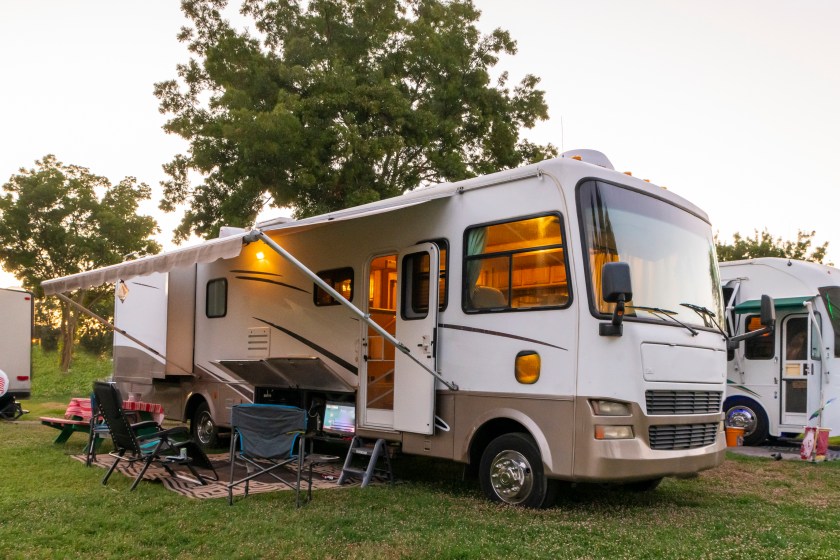
Getty Images, Larry Crain
Not everyone wants to share a community shower and restroom, lay a tarp on the ground to avoid getting wet, or leave the air conditioning behind once the driveway is out of sight. For them, "glamping" is not some new age camping word, it is the first word in getting away and remaining comfortable.
And there isn't anything wrong with that.
The RV lifestyle is less about leaving the camping gear behind and more about relieving the hassle that comes with it. While tent campers may use a rain fly, RV users have a hard top and an awning to fold out their own table underneath. RV campers might know more about a class C hitch than a class in woodsmanship, but that doesn't mean they can't take care of themselves in the outdoors.
It must be said that RV camping can involve a level of towing that some may not be used to. It can also be said that RVing takes a higher level of experience before it can be deemed a safe adventure for you and your family. After all, you don't have to drive a large tent down the road and watch for low bridges, or make the same wide turns that a big motorhome needs.
RV camping provides a greater level of accessibility to the outdoors for many, while also limiting where in nature that access is due to RVs only really being able to get to places with decently paved roads.
An RVing road trip can involve the same levels of happiness and planning that goes with tenting, and sometimes can use the same tent sites as well. And if you don't own an RV, there are RV rentals that can be had to create that "trip to remember" that you've been looking for all these years.
RV Camping vs. Tent Camping
Let's review: tent camping is a more "primitive" and rugged way of living for a short time while you and your family are away from home, whereas RV camping affords a much more comfortable form of having a getaway without the loss of the creature comforts that we are all used to.
RVing needs an experienced driver, usually an RV-friendly park, and hookups to electrical and a sewer (in some cases septic) system.
Either form of camping can use a generator, but in situations like a park campground it may be quite intrusive to other campers. RVs can take up a lot of space while a tent, or even multiple tents, have a smaller footprint and can be set on one site.
RV camping is probably a safer way to enjoy the outdoors, as they have a hard top and are generally grounded from lightning storms, whereas a tent is not and needs to be vacated in an electrical storm situation.
RV camping is most certainly the more expensive of the two. Tent campers need a lot of gear and a solid checklist so they don't miss anything on the way out the door. Some say RVing isn't really camping. Others say tents are for kids.
As a bottom line, whatever your choice is, we are behind you all the way! For those of us who love getting out into nature, it's not so much about what method you use or how comfortable you wish to be. It's about locking up the house, letting your family know where you are going, and getting out in the wide open spaces for a true breath of fresh air and a little R&R.
READ MORE: The Cheapest Way To Go RVing This Summer
